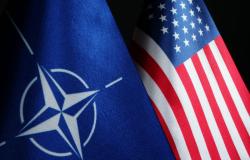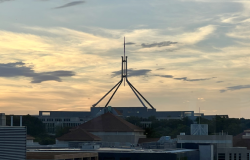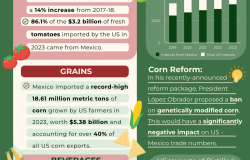What Will Obama & EPN Discuss?
As Presidents Barack Obama and Enrique Peña Nieto prepare to meet tomorrow, January 6, 2015, in Washington, D.C., Andrew Selee discusses four critical issues on the bilateral agenda.
On January 6, Presidents Enrique Peña Nieto and Barack Obama will meet at the White House in Washington to go over several points on the bilateral agenda. It's the third visit that Pena Nieto makes to the United States, but his first to Washington, and it follows on two visits that Obama has made to Mexico for presidential discussions.
Both Presidents are facing difficult moments in their domestic agendas. Pena Nieto for reasons that are well-known, and Obama because he faces the inauguration of a Republican Congress on the same day. Yet there are at least four issues on the agenda between the Presidents that are critical for both countries.
The first is migration, since Obama has promised to legalize up to four or five million unauthorized immigrants through an executive order. Although this is a unilateral measure, roughly two-thirds of those eligible are Mexican, and there are a number of issues for coordination to make sure this process goes well. Both heads of state are interested in making sure that the legalization process is expedited and easy, and that Mexicans who are eligible can get the identity documents they need in Mexico to access the process. There may well be concrete announcements on this subject.
The second issue is economic integration, since roughly 80 percent of Mexican exports go to the US market and around 13 percent of US exports to the Mexican market. There is a High-Level Economic Dialogue, chaired by Vice President Joe Biden and Mexican Secretary of Finance Luis Videgaray, that will take place during the visit and which includes several key cabinet secretaries. The hope is that the two countries can continue lower the barriers to trade and make border crossing more agile so as to elevate productivity in both countries. The work has been gradual and methodical, but we can expect some advances in this area.
The third issue is public security, a subject that has returned to prominence in Mexico and in which there are some new elements of cooperation possible. I doubt that we will see a return to the kind of discussion that once existed around "shared responsibility," but there are still areas of collaboration worth exploring in which the two countries could help each other in their individual efforts to deal with organized crime.
Finally, the two leaders have several areas of foreign policy to explore, which go beyond the bilateral agenda. Obama's announcement that the U.S. will normalize relations with Cuba, for example, offers an opportunity for Mexican diplomacy to play an important facilitating role. As Homero Campa has documented in his book, there has always been a triangular relationship among Cuba, Mexico, and the U.S., and there are vital opportunities for discreet Mexican diplomacy to make sure that the rapprochement takes places as expected and that Cuba returns to the Inter-American system. And there are numerous other global issues, from Venezuela to Syria, in which the two leaders may have issues to discuss.
Even if both Presidents are facing their own domestic challenges, it is vital that they get together regularly to review the issues on a bilateral agenda that is continuously more intense and interrelated. In this case, the announcements about legalization of unauthorized immigrants and the normalization of relations with Cuba will give a special note of importance to this presidential meeting, in additional to those issues that are always part of a complex and changing agenda.
Andrew Selee is Executive Vice President of the Wilson Center and a collaborator of the Center's Mexico Institute. His opinions are personal and do not reflect an institutional position.
This article was originally published in Spanish on El Universal.
About the Author

Andrew Selee
President, Migration Policy Institute

Mexico Institute
The Mexico Institute seeks to improve understanding, communication, and cooperation between Mexico and the United States by promoting original research, encouraging public discussion, and proposing policy options for enhancing the bilateral relationship. A binational Advisory Board, chaired by Luis Téllez and Earl Anthony Wayne, oversees the work of the Mexico Institute. Read more










